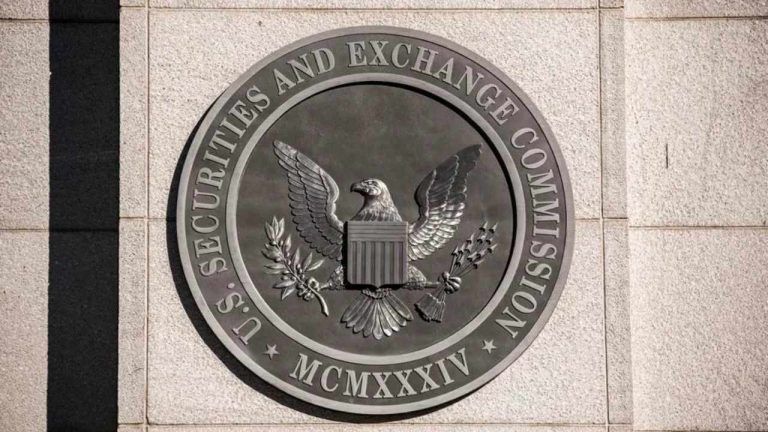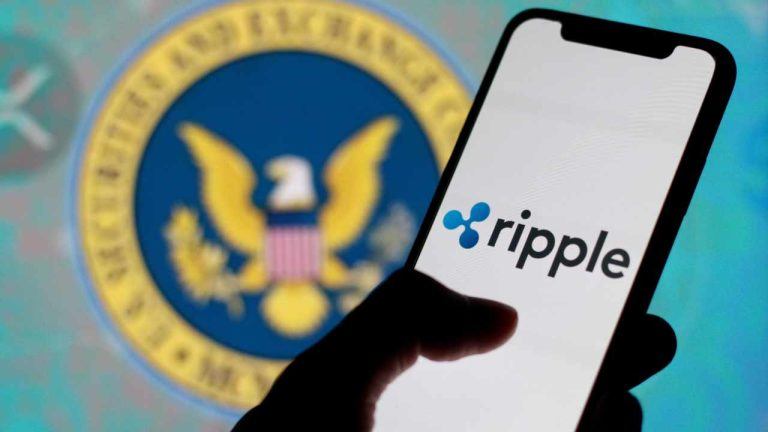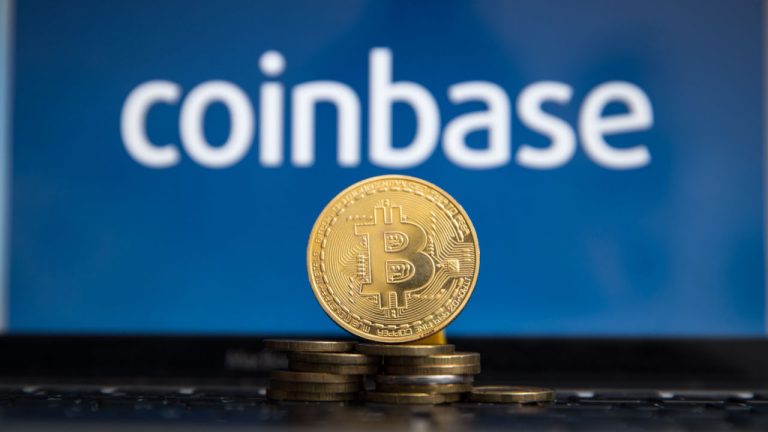
More than two dozen Wall Street firms including Bank of New York Mellon and Truist have agreed to pay a massive collective fine to US regulators. The financial companies are handing over $470 million to the U.S. Securities and Exchange Commission (SEC) and the Commodity Futures Trading Commission (CFTC) to settle charges that the firms […]
The post US Banks Paying $470,000,000 To Regulators Over Widespread Recordkeeping Failures and ‘Off-Channel’ Communication Methods appeared first on The Daily Hodl.
 The U.S. Securities and Exchange Commission (SEC) has charged Ideanomics Inc. and three of its senior executives with fraud for misleading financial disclosures from 2017 to 2019. Former Chairman and CEO Zheng (Bruno) Wu, current CEO Alfred Poor, and former CFO Federico Tovar were implicated in overstating the company’s financial performance and failing to disclose […]
The U.S. Securities and Exchange Commission (SEC) has charged Ideanomics Inc. and three of its senior executives with fraud for misleading financial disclosures from 2017 to 2019. Former Chairman and CEO Zheng (Bruno) Wu, current CEO Alfred Poor, and former CFO Federico Tovar were implicated in overstating the company’s financial performance and failing to disclose […] District Judge Analisa Torres has cut the penalty requested by the U.S. Securities and Exchange Commission (SEC) in the case against Ripple Labs over XRP by 94%. The court partially granted the SEC’s motion for remedies against Ripple, imposing a $125 million civil penalty. “This is a victory for Ripple, the industry, and the rule […]
District Judge Analisa Torres has cut the penalty requested by the U.S. Securities and Exchange Commission (SEC) in the case against Ripple Labs over XRP by 94%. The court partially granted the SEC’s motion for remedies against Ripple, imposing a $125 million civil penalty. “This is a victory for Ripple, the industry, and the rule […] Ripple’s chief legal officer has countered the U.S. Securities and Exchange Commission (SEC)’s allegations following the crypto firm’s proposal to limit its penalty to no more than $10 million. The legal chief highlighted that the SEC is “raging” and emphasized that, unlike the Terraform Labs case, there are no victims to compensate in Ripple’s case. […]
Ripple’s chief legal officer has countered the U.S. Securities and Exchange Commission (SEC)’s allegations following the crypto firm’s proposal to limit its penalty to no more than $10 million. The legal chief highlighted that the SEC is “raging” and emphasized that, unlike the Terraform Labs case, there are no victims to compensate in Ripple’s case. […]

A New York district court judge has rubber-stamped Terraform Labs and Do Kwon’s nearly $4.5 billion settlement with the SEC.
A United States district court judge has signed off on the $4.5 billion settlement between Terraform Labs, its founder Do Kwon and the Securities and Exchange Commission.
New York District Court Judge Jed Rakoff approved the deal on June 13, which will see Terra and Kwon pay $4.47 billion in fines and penalties and be essentially banned from the crypto industry.
In all, Terraform will pay disgorgement fines of roughly $3.6 billion, a civil penalty of $420 million and prejudgement interest of nearly $467 million.

A US regulator says it’s reached a $1.5 million settlement with a bank that caused “significant harm” to its customers. The Federal Deposit Insurance Corporation (FDIC) says Bank of England, based in England, Arkansas, deceived veterans into overpaying for services while not delivering the products they were entitled to. The regulator says one of the bank’s […]
The post US Regulator Says Bank Will Pay $1,500,000 Settlement for Allegedly Overcharging and Deceiving Hundreds of Customers in Veterans’ Loan Scandal appeared first on The Daily Hodl.

The initial impact amounted to 20 Ether, worth $31,000, while the validator involved has now been taken offline.
Ethereum staking protocol Lido Finance has disclosed its protocol saw 20 slashing events due to a series of infrastructure and signer configuration issues from validators operated by Launchnodes.
The incident occurred on Oct. 11 at about 3:30 pm UTC, according to Launchnodes. In an Oct. 11 post on X, Lido said Launchnodes' validators nodes are now offline, and slashings have ceased while the root cause was being investigated.
The slashing took place on the Ethereum blockchain and Lido projected the impact to be around 20 Ether (ETH), worth $31,000, as well as additional penalties while the validators are offline for troubleshooting, along with inactivity penalties that the validators will accumulate.
20 slashings have occurred relating to validators operated by the @launchnodes node operators as a part of the Lido protocol.
— Lido (@LidoFinance) October 11, 2023
Launchnodes and DAO contributors are investigating.
The validators are offline and slashings have ceased while the root cause is being investigated.
Slashing is a process where a validator breaches a blockchain’s proof-of-stake consensus rules, which often results in the removal of that validator or slashing a portion of the staked-Ether that they provided as collateral.
In a post hours later, Launchnode said the slashing events occurred due to an infrastructure and signer configuration issue.
“We are investigating, and taking steps to prevent any further occurrences and restore full service,” the platform added.
Addressing the 5:30pm CET incident with Launchnodes' validator nodes for Lido protocol getting slashed: The issue is identified, and linked to an infrastructure and web3 signer configuration issue. We are investigating, and taking steps to prevent any further occurrences and…
— Launchnodes (@launchnodes) October 11, 2023
Lido said stakers on the protocol are not affected other than a reduction in daily rewards that will be reflected in the next rebase on Oct. 12.
The staking provider also confirmed that the Lido DAO has an insurance fund of 6,230 staked-ETH, worth $9.5 million, and will be used to mitigate the slashing impact — but by design it does not trigger automatically.
Lido added that stETH holders will be compensated once the “cover method” has been decided, while Launchnodes has pledged to reimburse all losses incurred to Lido.
Related: Ethereum staking services agree to 22% limit of all validators
The liquid staking protocol said the process isn’t automatic because it is impossible to know what the total losses will be ahead of time.
Lido is by far the largest liquid staking protocol, with $13.8 billion in total value locked on its protocol, according to DefiLlama. The next largest is Rocket Pool at $1.7 billion.
Only 226 validators (0.04% of all validators) in the Ethereum ecosystem have been slashed since the launch of the Beacon Chain on Dec. 1, 2020 up until late February 2023.
Magazine: DeFi Dad, Hall of Flame: Ethereum is ‘woefully undervalued’ but growing more powerful

Florida-based lawyer Drew Hinkes described the bill as “the most unworkable state law” related to blockchain and cryptocurrency that he has ever seen.
A recently introduced Illinois Senate Bill has been ridiculed by the crypto community over its "unworkable" plans to force blockchain miners and validators to do "impossible things" — such as reversing transactions if ordered to do so by a state court.
The Senate Bill was quietly introduced into the Illinois legislature on Feb. 9 by Illinois Senator Robert Peters but appears to have been only recently noticed by Florida-based lawyer Drew Hinkes who discussed the bill in a Twitter post on Feb. 19.
The bill titled the “Digital Property Protection and Law Enforcement Act,” would authorize the courts — upon a valid request from the Attorney General or a State's Attorney that is made pursuant to the laws of Illinois — to order a blockchain transaction that is executed via a smart contract to be altered or rescinded.
The act would apply to any "blockchain network that processes a blockchain transaction originating in the State."

Hinkes described the bill as “the most unworkable state law” related to blockchain and cryptocurrency that he has ever seen.
"This is a stunning reverse course for a state that was previously pro -innovation. Instead we now get possibly the most unworkable state law related to #crypto and #blockchain I’ve ever seen," he said.
The bill states that any blockchain miners and validators may be fined between $5,000-10,000 for each day that they fail to comply with court orders.
While acknowledging the need to implement bills that strengthen consumer protection, Hinkes said it would be “impossible” for miners and validators to comply with the bill proposed by Senator Peters.
SB1887 focuses on consumer protection (this is GOOD). But, the manner in which it seeks to protect consumers is to require #node operators ##miners & #validators to do impossible things, or things that create for themselves new criminal & civil liability at pain of fines/ fees /3
— Drew Hinkes (@propelforward) February 19, 2023
Hinkes was also shocked to see that “no defense” would be available to miners or validators that operated on a blockchain network that “has not adopted reasonable available procedures” to comply with the court orders.
The bill also appears to mandate "any person using a smart contract to deliver goods and services" to include code in the smart contract which can be used to comply with court orders.
“Any person using a smart contract to deliver goods or services in this State shall include smart contract code capable of enforcing court orders regarding the smart contract.”
If you thought that was bad. Get ready to #Illinoize your blockchain! Yes, #Illinois is going to force you to re-write your blockchain- specifically by including smart contract code capable of responding to court orders. And if you don’t, you can be sued /10
— Drew Hinkes (@propelforward) February 19, 2023
Other members of the cryptocurrency community have responded with similar ridicule of the bill proposed by Peters.
Crypto analyst “foobar” noted to his 120,800 Twitter followers on Feb. 19 that court ordered transactions would need to — somehow — be amended “without needing the private key” of the participants, which he considered to be “hilarious.”
this is hilarious, Illinois is proposing a bill that would make miners & validators “respond to a court order by including transactions on the blockchain without needing the private key”
— foobar (@0xfoobar) February 19, 2023
why are you refusing to comply, transfer satoshi’s bitcoin to governor pritzker! off to jail https://t.co/7JcpktWMgH pic.twitter.com/FPKLsFNE3e
Gabriel Shapiro, lawyer and general counsel at investment firm Delphi Labs explained very briefly to his 34,100 Twitter followers on Feb. 19 that the bill would essentially try to ban immutability on blockchains:
TLDR--they are trying to ban immutability https://t.co/HSg00pcFHx
— _gabrielShapir0 (@lex_node) February 19, 2023
Meanwhile, Carla Reyes, assistant professor at Southern Methodist University School of Law in a Feb. 19 tweet, stated that lawmakers should only introduce bills if they understand how the technology works.
While immutability is a common property in blockchains and distributed ledgers, the Peters-sponsored bill explained that such networks lack an enforcement mechanism that can be tapped into by the courts:
“As a result, the cost to enforce legal rights in digital property is often prohibitive such that the property rights cannot be vindicated and the vast majority of blockchain crimes go unpunished.”
Fraud and mistake would be two of the most commonly used cases where Illinois courts may order for a blockchain transaction to the victim or original sender, the bill noted.
The bill also wants to help users recover their assets if they lose their private keys.
Related: What is blockchain technology? How does it work?
While the bill was only introduced on Feb. 9, it will need to be "read" and voted in by three separate committee hearings before being passed on to Illinois Governor Jay Pritzker to officially sign the bill into law.
The first reading took place on the same day it was introduced into the Illinois General Assembly by Peters.
If it is ever passed, the contents of the bill would take effect 30 days after becoming law.
 The Dutch central bank has imposed a fine on crypto exchange Coinbase for providing services in the past without the necessary registration. The trading platform, which has until March to object to the measure, is currently considering an appeal against the move. Dutch Monetary Authority Fines Coinbase for Operating Without Registration De Nederlandsche Bank (DNB) […]
The Dutch central bank has imposed a fine on crypto exchange Coinbase for providing services in the past without the necessary registration. The trading platform, which has until March to object to the measure, is currently considering an appeal against the move. Dutch Monetary Authority Fines Coinbase for Operating Without Registration De Nederlandsche Bank (DNB) […] Link Global, a bitcoin mine operator in Canada, is facing a fine of up to $7 million for installing power plants to run its miners without government permission. The company installed several power plants without following legal procedures and alleges that, if the penalty is enforced, it will constitute a fatal blow to its finances. […]
Link Global, a bitcoin mine operator in Canada, is facing a fine of up to $7 million for installing power plants to run its miners without government permission. The company installed several power plants without following legal procedures and alleges that, if the penalty is enforced, it will constitute a fatal blow to its finances. […]